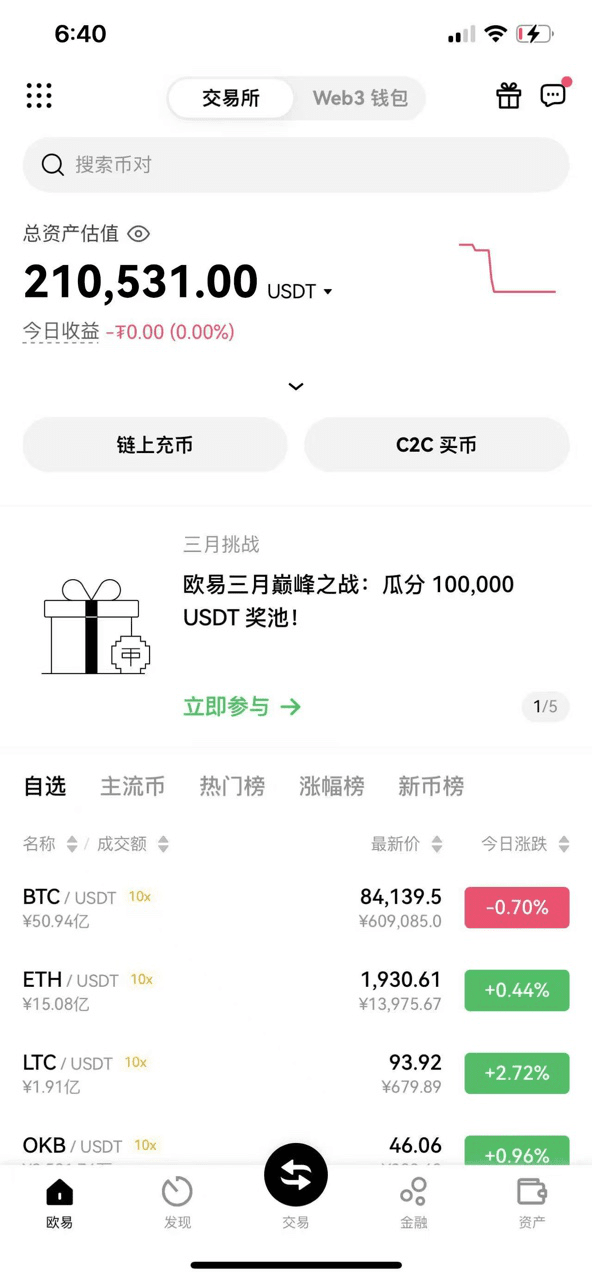Trading contracts is not gambling, nor is it just a whim. The core of the contract market is risk control, not the pursuit of getting rich quickly.
This article gives you three essential survival rules for beginners in contracts. The higher the execution, the less you lose, and the longer you survive.
First tip: Do not bet on direction; view trading as a probability event.
Most beginners trade contracts like they are betting in a casino, placing orders based on intuition and relying on luck.
But true experts in contracts execute under probability and discipline.
The most dangerous aspect of contracts is: leverage can amplify profits, but it can also instantly magnify losses.
For example, with 10x leverage, if the market moves against you by 1%, your position may get liquidated.
Before placing an order, you must go through three judgments:
Is the current major trend upward or downward?
Are there any sudden news events that could affect the direction?
If you judge incorrectly, at what position should you stop-loss?
Remember, the safest way is not to rush in but to confirm the market and follow the trend.
Even if you enter the market a little late, as long as the direction is right, it is much better than getting stuck right away.
Second tip: Use strategy for trading, not just intuition.
Randomly placing orders is worse than not trading at all. Trading requires principles, especially for beginners who should start practicing with 'foolproof' strategies.
The following three strategies are suitable for most beginners in contracts to try:
1. Grid quantification: Seek victory in stability.
Applicable to volatile markets, such as Bitcoin fluctuating within a certain range.
Set multiple limit orders within a fixed price range to automatically sell high and buy low. Appropriately combine with low leverage to stabilize profits during fluctuations.
As long as you set reasonable limits, keep small positions rolling slowly, daily returns can be controlled, and risks are lower.
2. Funding fee arbitrage: Stable returns.
While going long on spot, short the perpetual contract to lock in the funding rate difference.
When the funding fee is positive, this mode is almost risk-free. Annualized returns can exceed 10%, suitable for fund managers seeking stable returns.
3. Bidirectional hedging: Avoid sudden market movements.
In uncertain market conditions or when major events are approaching, you can open both long and short positions in equal amounts.
Once the direction is clear, stop-loss the losing positions, keep the profitable ones, and seize the real market fluctuations.
The focus is not on betting on direction but on being prepared in advance, waiting for the market to speak for itself.
Third tip: Strict risk control is essential to avoid liquidation.
Many people think that making a lot means winning, but what really determines whether you can survive is risk control.
Position control recommendations:
It is recommended not to exceed 1% of total funds when opening a position for the first time, and only to gradually increase the position on the basis of continuous profitability, with a maximum total position not exceeding 3%.
Once you incur a loss, reduce your position immediately. If you experience continuous losses, decisively go to cash and take a break. Don’t let a small loss turn into a big pit.
Recommended stop-loss discipline:
Every trade must have a stop-loss set, generally controlled within 2%-3%.
If profits exceed 5%, move the stop-loss to the cost price to ensure no loss.
Emotion management mechanism:
If you incur three consecutive losses, you must take a forced break for a day. Staying calm is much more important than acting impulsively.
Record the reasons for each trade decision and emotional state, treating each trade as material for review, and over time, you will naturally grow.
The principle of fund separation:
Manage investment money and living money separately. You must keep at least a year's worth of living expenses as a reserve.
Do not risk your living money; this is the most basic survival bottom line.
In conclusion:
Contracts are not based on luck or bravado, but on discipline and a system.
The more eager you are to make money, the easier it is to lose everything.
The calmer and more steady you are, the more likely you are to profit in the long run.
Beginners are advised to start with a simulated account, making 100 trades without loss before considering real trading.
In the contract market, true experts are not those who make money every day, but those who can survive until the end.
Learn 'how not to lose' first, then study 'how to make money'.
If you find these methods helpful, feel free to discuss trading logic together. Let’s not talk about dreams of getting rich, but focus on survival skills. Ensure that every bit of capital is on the right track.
$ETH $BTC $XRP #加密股IPO季 #香港稳定币新规 #币安HODLer空投PROVE


